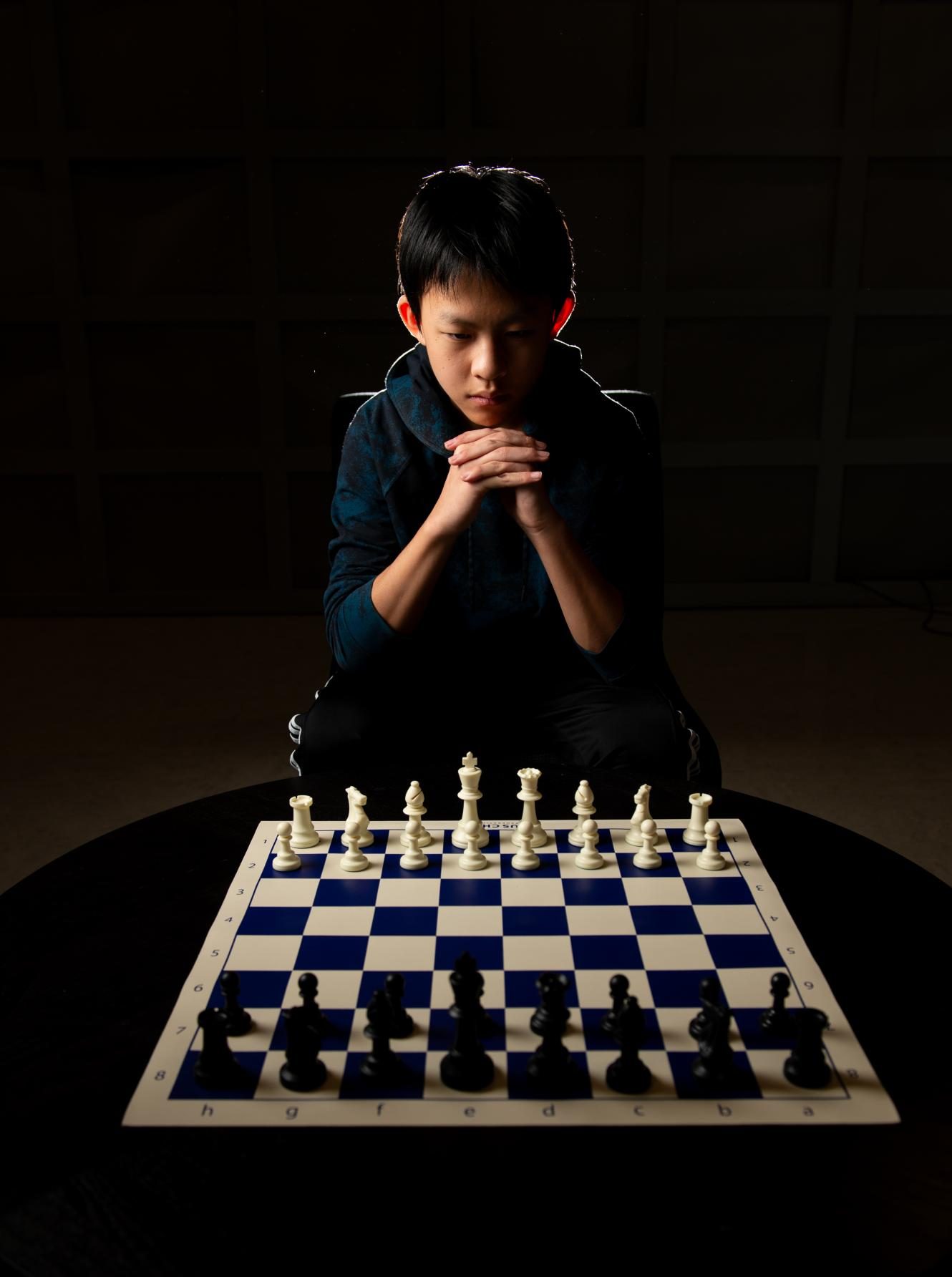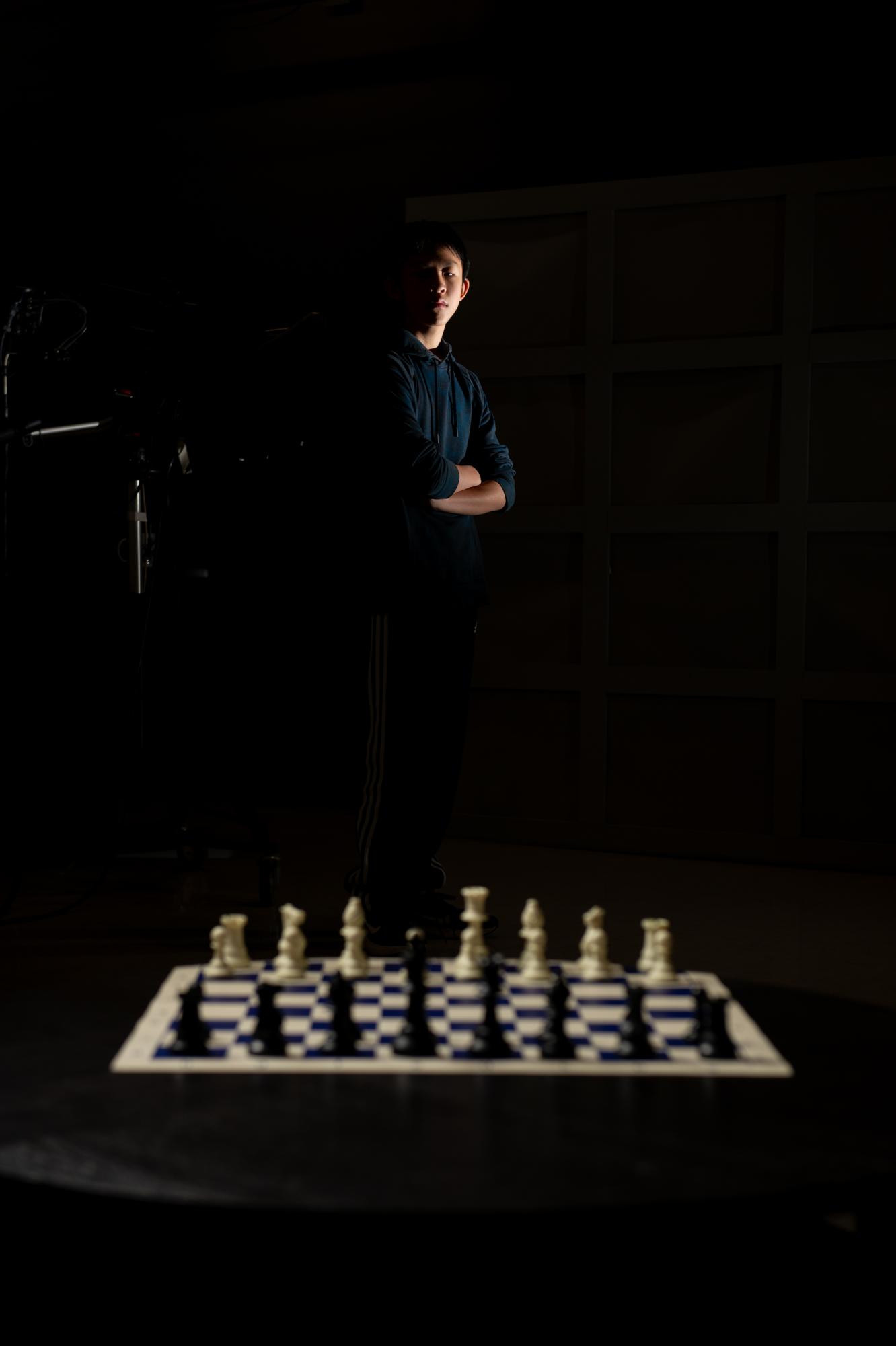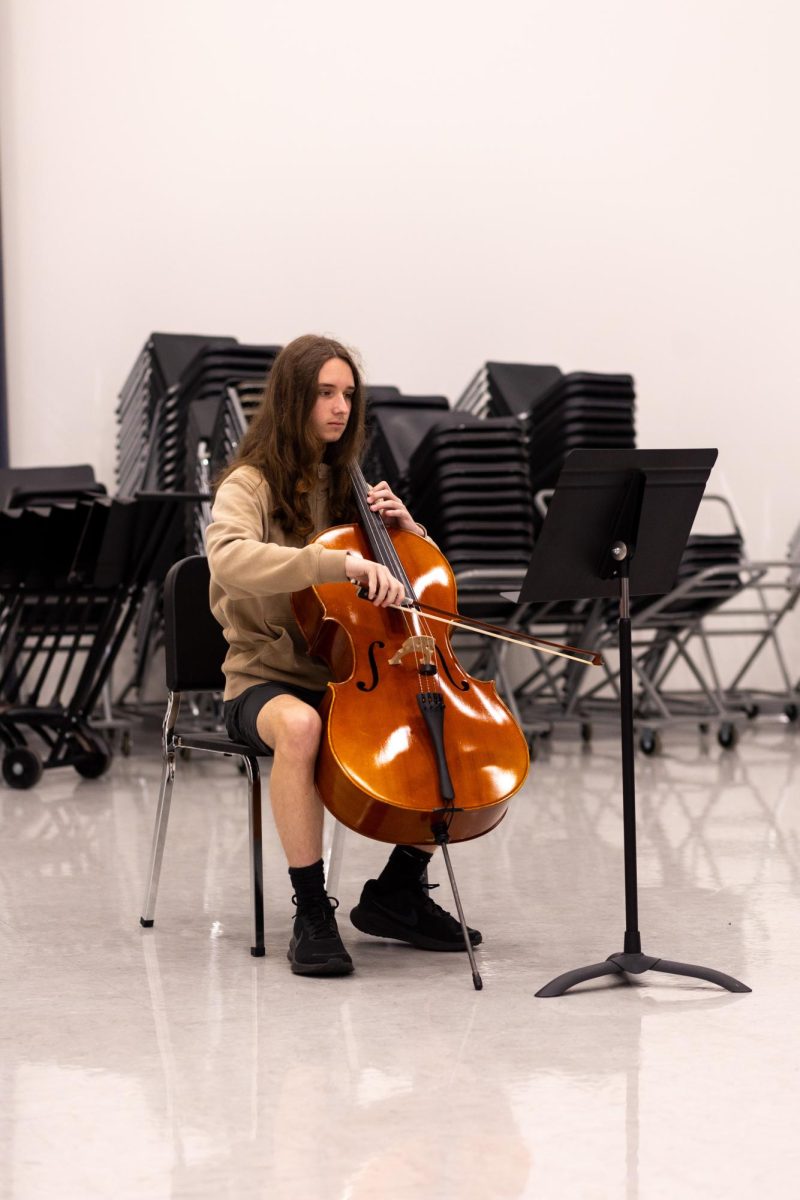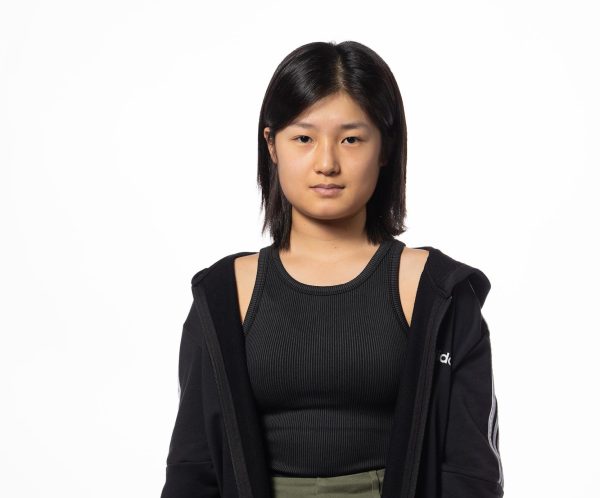Pieces being captured, clocks ticking and pencils racing against time to scratch notation echoed across the capacious room, decorated by a maze of black and white patterned checkerboards separating players. The tension between them could almost be torn apart with bare hands. A tumultuous silence among the significant number of people situated within the same space fosters an eerie silence, heightening the anxiety levels between observing spectators. A certain individual quietly sits back down at his table, mind refreshed, body rejuvenated and ready to win.
Alex Zhang (9) began his journey with chess when he was 6 years old, progressing into a national master. As of December 2024, Zhang ranks top 50 within his age group throughout the entire United States. Zhang’s passions first started when he watched his older brother, Max Yang, play a game of chess with his friends, sparking the flame that captivated Zhang into his lifelong journey with the game.
“[Alex] asked me to teach him how to play,” Yang said. “I remember that when I beat him the first time [Zhang was 6], he would flip the board over and get mad. But, he was persistent and kept wanting to play.”
Chess is a highly integrated part of Zhang’s life, and also plays a role in uniting and developing closer bonds with his family and friends. Zhang met his good friend, Ayden Huang (9) through chess in early elementary school. Since then, they have attended a variety of competitions together, even establishing a tradition to grab dinner at a few restaurants after their tournaments.
“There’s been a few times [when] we both won money, and those are definitely good moments,” Huang said. “Often we’ll get food together once we [aren’t competing in a match].”
At Zhang’s current level, tournaments are scarce and conditions are high for the few he can attend. A single trip to a good tournament can cost thousands of dollars, consisting of hefty financial requirements such as travel expenses, food for a few days and tournament entry fee. This doesn’t account for the amount of time spent planning or traveling and other events missed throughout the duration.
“When I was 7, I played against a high school student for my first game,” Zhang said. “I was winning, when my opponent literally took one of my pieces off the board. Obviously, he was cheating, but the arbiter for the tournament wasn’t very experienced and didn’t do anything. I won the game, but it was quite [the] amusing experience for me.”
Zhang was selected to represent Missouri in one of the most prestigious competitions. One player was selected from each of the 50 states to compete in the competition, representing their state. At a national tournament, Zhang won 7th, ranking top 10 within his age group at the time.
“I competed in many chess tournaments,” Zhang said. “The most memorable being the Chicago Open when I won $2000, and Barber, where I finished in third place.”
Currently, Zhang takes one-on-one online chess lessons from a tutor in Azerbaijan. While he used to have multiple coaches –– sometimes simultaneously –– and lessons in-person, he has transitioned to virtual sessions for their efficiency. When every second counts, saving time by eliminating the need to commute to and from lessons saves more time for Zhang to spend on chess or other activities.
“I got stuck for a long time at around 2200 rating,” Zhang said. “I was able to overcome it through intense training and work, [and] a good mentality going forward.”
Typically, Zhang practices consistently every single day. The amount of time he spends practicing varies, mainly depending on whether it’s a school day or weekend, but he always aims for about two or three games per day. At his level, each game could last between one to three hours.
“Chess has changed me as an individual,” Zhang said. “I was able to develop much better problem solving skills, as well as decision making skills. It also has allowed me to learn to trust my intuition, or gut feeling, a lot more.”
For someone who has continuously competed for almost eight years, burnout is an exhausting and relentless challenge. As a freshman starting high school, not only will Zhang need to balance his increasing academic workload and extracurriculars, he will also continue perservering in overcoming the burnout. Zhang has developed many important life skills from playing chess, such as self-motivation and confidence. These skills helped him persevere and flourish into the individual he is today.
“[Alex] is very confident,” Yang said. “Even after tough losses, he is able to bounce back quick.”
Zhang plans on continuing his chess journey throughout his high school career and the rest of his life. The game has become an inseparable part of himself. It defines a part of his identity, and majorly contributed to shaping his character into the national master he has become today.
“I hope to make it into World Youth and represent the U.S. team, or reach the Fide Master title,” Zhang said.






![School resource officer Rick Ramirez sits in his office. He usually spends little time in his office throughout his day of work, focusing on other issues. “Where our students are, I try to be,” Ramirez said. “Sometimes I get off at 2:45 p.m. when nothing’s going on, or sometimes I get off at 10 p.m. [Those are] my hours.”](https://laduepublications.com/wp-content/uploads/2024/12/Hsiao_20241203_ID_RickRamirez_007-799x1200.jpg)

![Reva poses in front of her home and address plaque. After reuniting with her father and grandparents, she has made many new memories and retained her culture. “We have a lot of Indian cooking going on,” Reva said. “I also like telling people about Indian food, mainly because that’s something that really connects me to [Mumbai].”](https://laduepublications.com/wp-content/uploads/2024/12/At-Home-1200x799.jpg)


